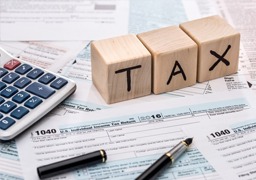# incometaxact
12 posts in `incometaxact` tag
.jpg)
Tax Dispute Resolution: How Section 245 Can Help
This blog offers a thorough explanation of Section 245 of the Income-tax Act, 1961, which addresses appeals and dispute resolution in relation to income tax. The blog highlights the significance of this section in preserving taxpayer rights and guaranteeing an equitable and transparent process by outlining its contents, methods, and ramifications for taxpayers.
.jpg)
Change in Taxation of Buy Back Of Shares: Understanding the New Regime Effective from October 1, 2024
With effect from October 1, 2024, the government has made major changes to the taxation of share buybacks. The new system, its effects on businesses and shareholders, and the rationale for these modifications are all explained in this blog post.

Opening Tax Benefits: An Overview of NPS Sections 80CCD(1) and 80CCD(2)
The National Pension System (NPS) tax benefits under Sections 80CCD(1) and 80CCD(2) of the Income Tax Act of 1961 are explained in this blog post. It discusses NPS contribution eligibility requirements, deduction caps, and exemption guidelines in addition to offering an example to show the tax advantages.

A Complete Guide to the Amendments to the Income Tax Act of 1961 to the Finance Act of 2024
An extensive overview of the changes made to the Income Tax Act of 1961 by the Finance Act of 2024 may be found in this blog article. It discusses the main adjustments, their effects on taxpayers, and the new tax system, tax rates, deductions, and exemptions.

Compliance with Section 206C(1H): A Must for Specified Persons
The Income Tax Act's Section 206C(1H) requires tax deduction at source, or TDS, on specific income kinds that are credited or paid to non-residents. Certain entities, including corporations, co-ops, and government agencies, must deduct TDS from certain types of revenue, including interest, rent, royalties, and technical service fees. TDS is normally present at a rate of 20%, though specific circumstances may cause this to change. Interest and penalties may be incurred for breaking Section 206C(1H) regulations.

A Complete Guide to Understanding Income Tax Notice Under Section 142(1)
This blog post provides a comprehensive guide to Income Tax Notice Under Section 142(1), including its purpose, when it is issued, and how to respond to it. It also covers the consequences of non-compliance and provides tips on how to safeguard yourself from penalties

CBDT's Latest Update on Income-Tax Clearance Certificate: What It Means for You
The Central Board of Direct Taxes (CBDT) has issued a clarification on the Income-Tax Clearance Certificate (ITCC), specifying the circumstances under which an individual is required to obtain one. This blog post breaks down the CBDT's clarification, explaining who needs an ITCC, when it's required, and the procedure to obtain one.

Section 148 of Income Tax Act: A Comprehensive Guide to Reassessment, Reply, and Avoidance
This blog post discusses the idea behind Income Tax Notice Section 148, the ITR reassessment, and offers tips for avoiding tax notices. It addresses the deadline for releasing a notice, how to reply to one under Section 148, and other considerations. The purpose of this post is to inform taxpayers about the significance of adhering to tax regulations and preventing tax notices.

Interpreting Section 139(9): A Comprehensive Guide to Managing Inaccurate Return Notifications
This blog post provides a comprehensive guide to the notice for defective return under Section 139(9) of the Income-tax Act, 1961. It covers the reasons for issuing a notice, the process of notice, consequences of receiving a notice, and tips on how to avoid receiving a notice.

Understanding Section 119 of the Income Tax Act: A Lifeline for Taxpayers
This blog post provides a detailed guide to Section 119 of the Income Tax Act, including its significance, guidelines for accepting or rejecting applications, monetary limits, and authorities responsible for dealing with these applications. It's a must-read for taxpayers and tax professionals looking to understand the intricacies of the Income Tax Act

Income Tax Reassessment Under Section 148A: Updated Schedules and Processes
The Finance Act, 2021, has introduced significant changes to the income tax reassessment provisions under Section 148A of the Income-tax Act, 1961. This blog post explains the new timelines and procedures for income tax reassessment, including the show-cause notice, taxpayer's response, and AO's decision.

Understanding the Section 143(2) Notice Time Limit: An Overview for Taxpayers
The time limit for issue of notice under Section 143(2) of the Income-tax Act, 1961, is six months from the end of the financial year in which the return of income is filed. This time limit can be extended by the Commissioner of Income-tax or the Chief Commissioner of Income-tax, as the case may be, for a period not exceeding six months. Taxpayers must comply with the notice issued by the AO within the prescribed period to avoid adverse consequences.
